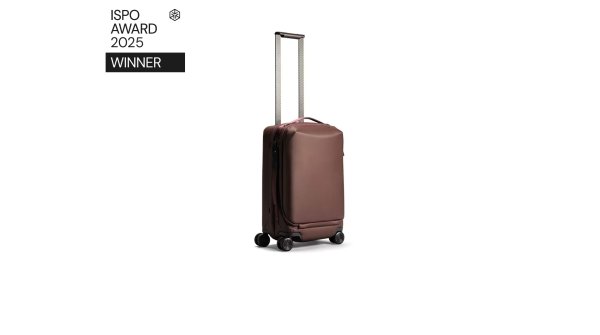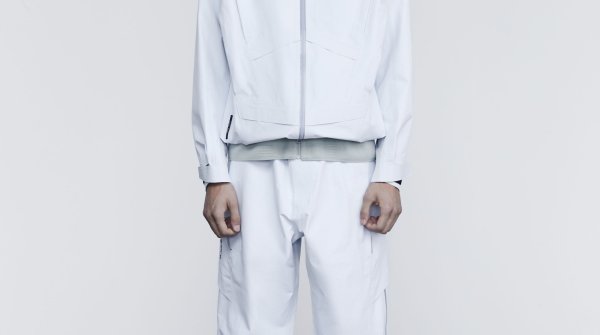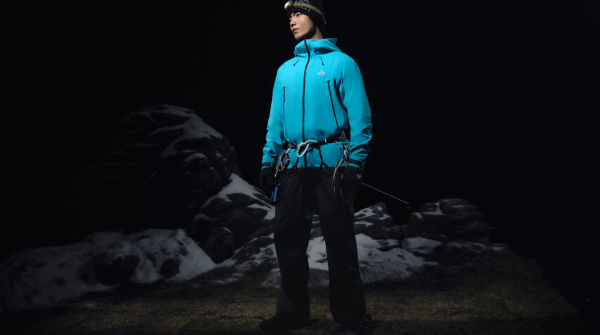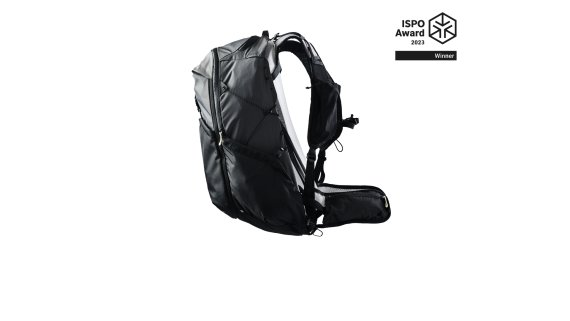
Airflow systems in backpacks are great as they keep your back ventilated during sweaty hikes. But they also come with certain compromises. “Typical airflow systems compromise both user stability and the usable storage space of the bag. With the new Freeflow, we set out to challenge these drawbacks«, explains Joe O’Connell, Senior Industrial Designer at Berghaus. This was the starting point for the brand to come up with a new design for hiking backpacks. With their new Freeflow, Berghaus set out to solve this problem which is quite a common one in hiking backpacks.
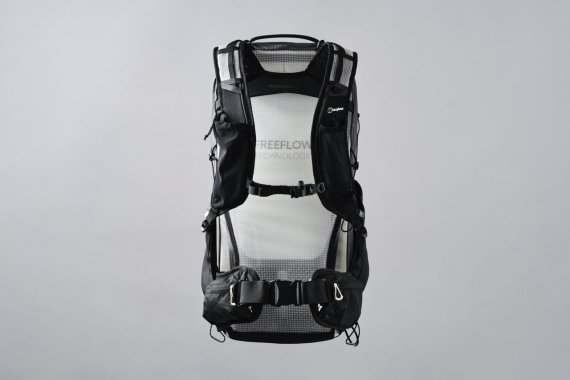
»Our design introduces an ergonomically engineered frame which positions the load closer to the body, enhancing stability and improving storage whilst maintaining airflow and cooling to the back.« The ergonomic frame follows the natural curve of the spine, ensuring stability whilst maintaining a consistent air gap of 40mm. At the contact point, 3D-printed pads provide stability and comfortable padding. With their unique structure, designed in collaboration with 3D print specialist Carbon, they are lightweight and enable continuous airflow. The mesh technology in the Freeflow 30+ is constructed seamlessly and aids airflow and heat regulation as well.
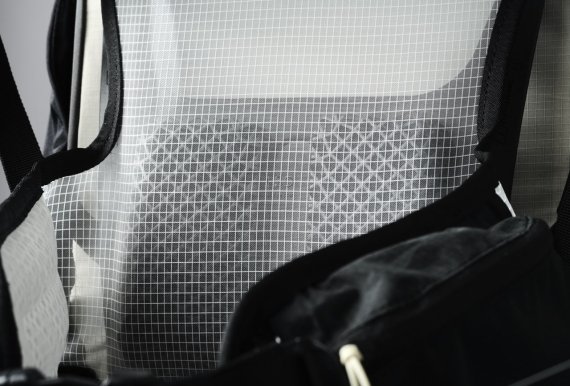
In the development phase, the backpack and its prototypes had to undergo some serious testing. »To ensure our design thoroughly answered the brief, we extended our development process, introducing additional prototyping rounds and partnering with end-users and anatomy experts at all stages of the project«, explains Joe O’Connell and his colleague, Rosemary Anderson, Berghaus Product Testing Coordinator adds: »Regarding the testing of this new Freeflow pack, we wanted to make sure we married up lab-based analysis with in-field data collection and user testing. We conducted in-house research, and then further explored this through utilising university equipment and staff to validate our ideas. Alongside this, we conducted team walks, speaking to users as they trialled prototypes at various stages of completion, and got the team hiking repeatedly with different packs to test their thermal dissipation characteristics.«
And the outcome speaks for itself. While traditional airflow backpacks compromise packing space and user stability by pushing the load away from the wearer, the Berghaus Freeflow 30+ does not. During the jury meeting, no matter how much the pack was filled, the fit on the back was always immaculate and felt very stable, when different ISPO Award jury members tried it on.
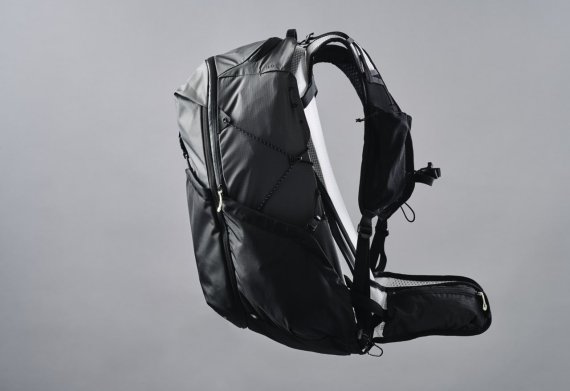
The frame is fully removable and recyclable. Polypropylene was selected for the frame for two key reasons: First, injection molding provided precise ergonomic control. Second, it can be widely recycled and is sourced from a bluesign-certified manufacturer in Vietnam. The 3D-printed pads are printed by Oechsler in Germany. The main body of the bag, including the straps, is manufactured using a conventional cut-and-sew production process.
The Berghaus Freeflow 30+ comes in two frame sizes, with incremental adjustability with each frame. The straps of the pack can be adjusted easily, to accommodate different builds and back lengths. It is designed ergonomically, to suspend the pack away from your back, keeping you cooler. The backpack capacity is 30 liters plus an expansion pocket offering an optional further 5 liters packing volume.
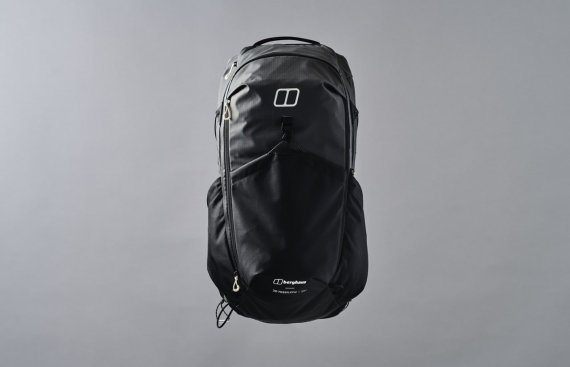
- Efficient airflow and temperature regulation thanks to consistent air gap
- Innovative ergonomic frame design and 3D-printed lumbar pads for improved stability in movement
- Recyclable polypropylene frame
- Customizable fit: Two frame sizes with additional adjustability
- Ample capacity of 30 liters plus five in additional pocket
Product specs:
- Colors: Jet black/gray pinstripe and nepal/airway gray
- Size: 30+5 liters, two frame sizes
- RRP: €200.00
- Release date: March 2024
- ISPO awards
- Mountain sports
- Bike
- Design
- Retail
- Fitness
- Health
- ISPO Job Market
- ISPO Munich
- ISPO Shanghai
- Running
- Brands
- Sustainability
- Olympia
- OutDoor
- Promotion
- Sports Business
- ISPO Textrends
- Triathlon
- Water sports
- Winter sports
- eSports
- SportsTech
- OutDoor by ISPO
- Heroes
- Transformation
- Sport Fashion
- Urban Culture
- Challenges of a CEO
- Trade fairs
- Sports
- Find the Balance
- Product reviews
- Newsletter Exclusive Area
- Magazine

